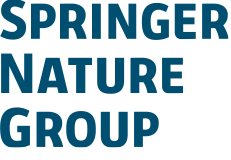Our Contributors
DAVID M. HILLIS is the lead author of Life: The Science of Biology, and Principles of Life, both published by Macmillan Learning. He is the Alfred Centennial Professor in Integrative Biology at the University of Texas at Austin, and serves as Director of the Biodiversity Center there. He is a member of the U.S. National Academy of Sciences and the American Academy of Arts and Sciences, and he is a MacArthur Fellow. His research is on the evolution and diversity of life, including research in viral evolution and epidemiology.
JENNIFER PUNT is a Professor of Immunology and Associate Dean of One Health at the University of Pennsylvania’s School of Veterinary Medicine. A coauthor of the Kuby Immunology textbook, she began her professorial career at Haverford College, where she taught for 18 years. She returned to her clinical roots as Associate Dean of Student Research at Columbia University’s medical school, where she developed a dual degree program for medical students pursuing research interests, and she was ultimately drawn back to the University of Pennsylvania, where she originally trained as a VMD/PhD student. At Penn, she is working with a team to develop novel interdisciplinary educational programs at the interface of animal, human, and environmental health and welfare. She has done post-graduate and sabbatical research at the National Institutes of Health (NIH), the Institut National de la Sante de la Recherce Medicale (INSERM, Strasbourg), and the University of Pennsylvania and deeply enjoys teaching immunology and biochemistry to students at all levels, both virtually and in person.
SHARON STRANFORD is Professor of Biology at Pomona College and coauthor of the popular Kuby Immunology textbook. She has spent the past 20 years working with inspiring undergraduates at three amazing liberal arts colleges (Amherst, Mount Holyoke, and now Pomona), teaching courses in Immunology, Infectious Disease, Public Health, and Cell Biology. Her NIH- and NSF-funded research laboratory studies anti-viral immune response pathways associated with susceptibility to acquired immune deficiency. She has done post-graduate work at Oxford University, UCSF, Harvard’s Bauer Center for Genomics Research (now the FAS Center for Systems Biology), and Yale’s School of Public Health. In addition to her immunology teaching and research, Sharon is also a member of several learning communities exploring inclusive and anti-racist pedagogy, including the HHMI Inclusive Excellence Initiative.
CARL ZIMMER is the author of fourteen books about science. His latest book is Life’s Edge: The Search for What It Means to Be Alive. He is also coauthor, along with Doug Emlen, of Macmillan Learning’s Evolution: Making Sense of Life. Zimmer’s column “Matter” appears each week in The New York Times. His writing has earned a number of awards, including the Stephen Jay Gould Prize, awarded by the Society for the Study of Evolution. In 2021 he was a member of the team at The New York Times that won the Pulitzer Prize in Public Service for coverage of the COVID-19 pandemic. Three of his books have been named Notable Books of the Year by The New York Times Book Review. His book She Has Her Mother’s Laugh won the 2019 National Academies Communication Award. The Guardian named it the best science book of 2018. Zimmer is a familiar voice on radio programs such as Radiolab and professor adjunct at Yale University. He is, to his knowledge, the only writer after whom both a species of tapeworm and an asteroid have been named.
Our thanks to contributions from Springer Nature, which includes Scientific American and Nature.
Springer Nature opens the doors to discovery for researchers, educators, clinicians and other professionals. Every day, around the globe, our imprints, books, journals, platforms and technology solutions reach millions of people. For over 175 years our brands and imprints have been a trusted source of knowledge to these communities and today, more than ever, we see it as our responsibility to ensure that fundamental knowledge can be found, verified, understood and used by our communities—enabling them to improve outcomes, make progress, and benefit the generations that follow.
For more information visit: Springer Nature Group and follow @SpringerNature
References
Morris, James, Daniel Hartl, Andrew Knoll, Robert Lue, and Melissa Michael (in press), Biology: How Life Works, 4th ed. Austin, TX: Macmillan Learning.
Nelson, David L., Michael M. Cox, and Aaron A. Hoskins (2021), Principles of Biochemistry, 8th ed. Austin, TX: Macmillan Learning.
Phelan, Jay (2021), What Is Life: A Gude to Biology with Physiology, 5th ed. Austin, TX: Macmillan Learning.
Shuster, Michèle, Janet Vigna, and Matthew Tontonoz (2021), Biology for a Changing World: With Physiology, 4th ed. Austin, TX: Macmillan Learning.

